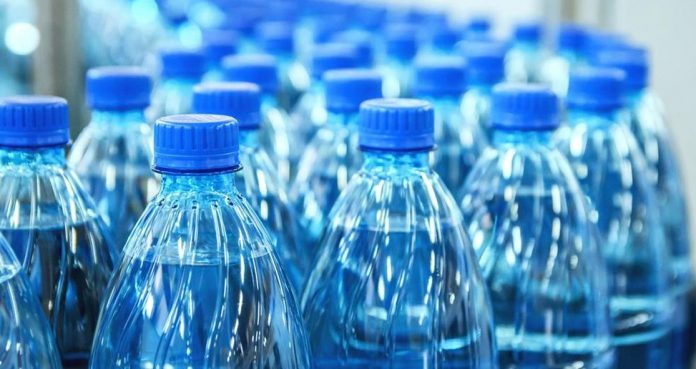The U.S. Food and Drug Administration (FDA) is suggesting a standard of the lower concentration level of fluoride in bottled water; however, some environmental groups and scientists believe that the recommended limit is still too high and could pose harmful effects on human health.
The current standard range of fluoride levels in domestically and imported packaged is between 0.8 mg and 1.7 mg per liter.
The FDA’s proposed guidelines with a 2015 recommendation from the US Public Health Service suggest that 0.7 mg per liter is the optimal fluoride concentration for community water systems that add fluoride.
The agency said in a statement, “The new rule is based on findings from evolving research on optimal concentrations of fluoride that balances fluoride’s benefits in preventing tooth decay with its risk of causing dental fluorosis, a condition most often characterized by white patches on teeth.”
Too much intake of fluoride over a period of time when adult teeth are forming under the gums can cause dental fluorosis.
However, some scientists and environmental groups believe that the new FDA proposal is still too high.
Dr. Philippe Grandjean, a professor of environmental health at the Harvard TH Chan School of Public Health, wrote in an email, “Given that fluoride can damage brain development, I would recommend that the maximum fluoride concentration in bottled water be kept at a lower level than 0.7 mg/L.”
Research director of the American Environmental Health Studies Project Christopher Neurath said, “Currently, there are rapidly increasing scientific studies showing neurotoxicity to fluoride,” with research showing a direct link between children’s IQ and their level of fluoride exposure in the womb: “That is our largest concern.”
The American Dental Association (ADA) has noted that science-based organizations, including itself and the American Academy of Pediatrics, fully support the public health benefits of community water fluoridation.
The associations have also noted that the new FDA proposed standard would help prevent tooth decay, while not increasing the risk of dental fluorosis.
The ADA said, “Even with the availability of other sources of fluoride, community water fluoridation prevents tooth decay by at least 25% in both children and adults.”
Assistant professor of the Dalla Lana School of Public Health at the University of Toronto Morteza Bashash has found that higher fluoride concentration, as found in urine samples of pregnant women, is associated with lower IQ as well as an increased risk of attention-deficit hyperactivity disorder (ADHD) among children in Mexico.
Neurath published a study on dental fluorosis earlier this year, which is based on National Health and Nutrition Examination Survey data. He found that there has been a dramatic increase in fluorosis in the last 10 years.
The research directors said, “Dental fluorosis is a visible sign of overexposure to fluoride, but there are other nonvisible signs and adverse health effects that are much more serious.” He added, “Cavities are not the only concern. The proposed rule is not adequate.”
Grandjean’s said, “Given that fluoride is added to toothpaste to secure that the enamel surface of the teeth is properly protected against caries, there is no need to supplement the dietary fluoride intake.”
Alternatively, Bashash said, “Fluoride in drinking water is considered one of the ‘biggest public health victories’ in preventing cavities.”
The director of the National Institute of Environmental Health Sciences Linda Birnbaum, said, “Large, cross-government working group looked at the data available in 2010 to 2011 and concluded that 0.7 milligrams per liter was the appropriate level of fluoride concentration in drinking water, one that “balances protection from dental caries while limiting the risk from dental fluorosis.” The International Bottled Water Association said it supports the new FDA proposal to revise the standard levels of fluoride added to bottled water.






















